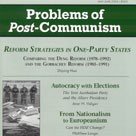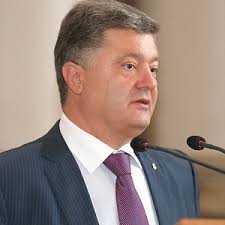(Problems of Post-Communism) As Peter Gourevitch wrote, “If nations have choices, we need theories and research that explains how countries make these choices.” This special issue of Problems of Post-Communism responds to Gourevitch’s plea with regard to contemporary Russian foreign policy. The articles in this issue scrutinize, develop, and/or test theories of foreign policy making that go beyond analysis of systemic imperatives. Kimberly Marten focuses on political culture, in particular the role of “informal politics” in shaping foreign policy making. Marlene Laruelle assesses the role of nationalist ideology through the lens of interest-group politics. Theodore P. Gerber investigates public opinion, specifically attitudes toward the United States. Adam N. Stulberg explores change in energy markets and patterns of state interconnectedness in technical and corporate energy networks.
Making Sense of Russian Foreign Policy: Guest Editors’ Introduction
Informal Political Networks and Putin’s Foreign Policy: The Examples of Iran and Syria
Russia as a “Divided Nation,” from Compatriots to Crimea: A Contribution to the Discussion on Nationalism and Foreign Policy
Foreign Policy and the United States in Russian Public Opinion
Out of Gas?: Russia, Ukraine, Europe, and the Changing Geopolitics of Natural Gas
Special Issue: Making Sense of Russian Foreign Policy
Problems of Post-Communism (subscription required)
Volume 62, Issue 2, 2015











